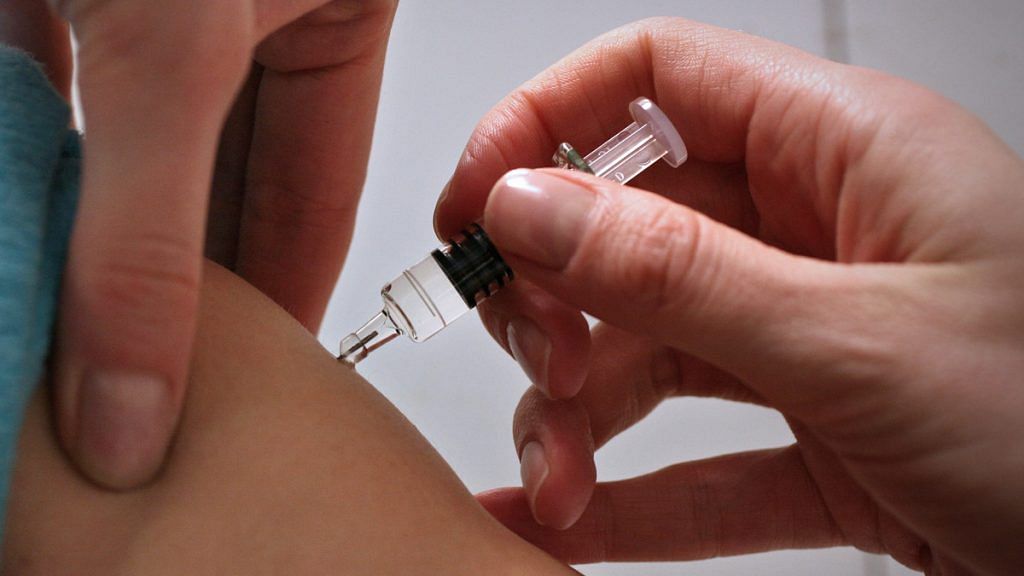New Delhi: The Ministry of Science and Technology Saturday said it was “unlikely” that vaccines that have started human trials will be ready for public use before 2021, but soon revised its statement to drop the claim.
The statement comes days after the Indian Council of Medical Research (ICMR) wrote to 12 principal investigators, telling them to prepare the country’s indigenous vaccine, Covaxin, for public health use by 15 August 2020.
The science ministry’s statement, written by scientist Dr T.V. Venkateswaran, initially read: “Along with the two Indian vaccines, COVAXIN and ZyCov-D, the world over, 11 out of 140 vaccine candidates have entered the human trials. None of these vaccines is unlikely to be ready for mass use by 2021 [sic].”
The ministry later revised it to omit the last sentence.
Also read: All about Bharat Biotech’s Covaxin, India’s first indigenous Covid vaccine candidate
Contradictory statements
The statement comes at a time when the ICMR’s letter has drawn flak for its “unscientific” approach to clinical trials for vaccines.
ThePrint had reported how the 12 principal investigators entrusted with conducting first and second phases of Covaxin clinical trials were wary of the 15 August deadline.
Healthcare experts have also slammed the ICMR for making the assumption that the vaccine will pass all phases successfully, without any proof at hand.
The ICMR later defended the letter, and said it was meant to “cut unnecessary red tape” and “speed up recruitment of participants”.
Vaccines normally take years to develop, with each phase taking months of study. The first phase establishes safety, while the second and third phases establish both safety and efficacy over larger sample sizes. Only after a vaccine successfully passes all three phases can it be released to the public.
The science ministry’s original statement flies in the face of ICMR’s original call to ready the vaccine for public use by next month.
Statement dropped because of ‘incorrect grammar’
The science ministry’s press release refers to India’s two indigenous vaccines that will enter the human trial stage — ICMR-backed Covaxin by Bharat Biotech and Zydus Cadila’s ZyCov-D — to say that these mark “the beginning of the end” of the pandemic.
It goes on to explain how vaccines work and which vaccines, apart from the two mentioned above, are in the “race” to end the pandemic.
Asked why the sentence regarding the date 2021 was dropped, ministry spokesperson K.G. Sharma told ThePrint, “The grammar of the sentence was wrong. Also, the purpose of the article was not to establish how long it takes for a vaccine to be developed, but rather to explain how vaccines work. That’s why it was dropped.”
Also read: ‘Meant to cut red-tape, not scientific rigour’ — ICMR defends bid to fast-track Covid vaccine
